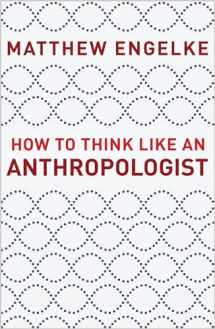
How to Think Like an Anthropologist
Book details
Summary
Description
From an award-winning anthropologist, a lively, accessible, and irreverent introduction to the field
What is anthropology? What can it tell us about the world? Why, in short, does it matter? For well over a century, cultural anthropologists have circled the globe, from Papua New Guinea to California, uncovering surprising insights about how humans organize their lives and articulate their values. In the process, anthropology has done more than any other discipline to reveal what culture means and why it matters. By weaving together examples and theories from around the world, Matthew Engelke provides a lively, accessible, and at times irreverent introduction to anthropology, covering a wide range of classic and contemporary approaches, subjects, and anthropologists. Presenting memorable cases, he encourages readers to think deeply about key concepts that anthropologists use to make sense of the world. Along the way, he shows how anthropology helps us understand other cultures and points of view―but also how, in doing so, it reveals something about ourselves and our own cultures, too.


We would LOVE it if you could help us and other readers by reviewing the book
Book review





